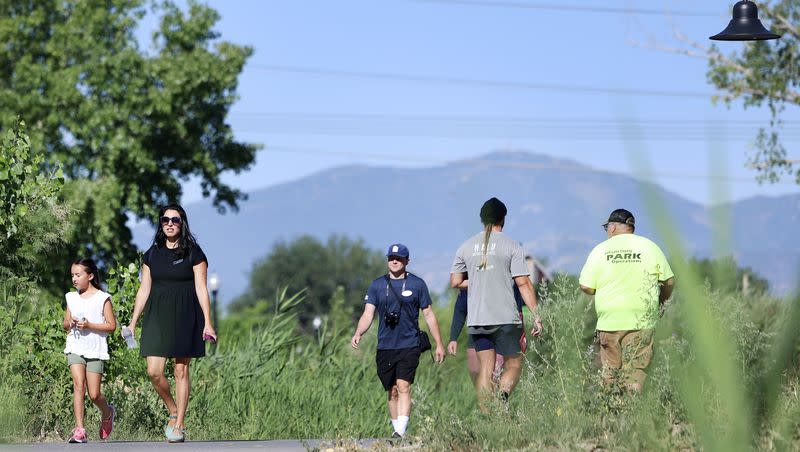How walking can improve your health and increase your lifespan

In the United States, nearly two people die every minute from cardiovascular disease, the Centers for Disease Control and Prevention reported. As the leading cause of death for men and women in the U.S., heart disease costs the country about $239 billion each year.
The solution to lowering the risk of heart disease in your life can be as minimal as going for a walk. The problem is that Americans aren’t walking nearly as much as they used to. Between 2019 and 2022, “the number of annual average daily walking trips dropped a whopping 36%,” per Axios.
Why has walking decreased?
Two studies found significant reasons as to why Americans are walking less. The first has to do with the impact of COVID-19.
The study published in Jama Network Open had 5,443 participants wear a Fitbit for at least six months pre- and post-COVID-19 pandemic.
“On average, people are taking about 600 fewer steps per day than before the pandemic began,” study author Dr. Evan Brittain, associate professor of cardiovascular medicine at Vanderbilt University Medical Center, told ABC News.
Brittain added, “To me, the main message is really a public health message — raising awareness that COVID-19 appears to have had a lasting impact on people’s behavioral choices when it comes to activity,”
Research from Virginia Tech and shared in Neuroscience News studied why Americans walk significantly less than people in European countries. Researchers discovered that Americans engage in less walking and experience higher rates of fatalities. And because of this concerning situation, Americans prefer driving.
“People walk less in the United States because it’s more dangerous to walk here and walking conditions are worse compared to other countries,” Ralph Buehler, professor of urban affairs and planning at Virginia Tech, told Neuroscience News.
The study found that Americans take less than half the number of daily walking trips than the British, yet they are six times more likely to experience fatality per mile walked.
“We were interested in figuring out how more people can walk while increasing pedestrian safety. Walking doesn’t have to be a means of transport of last resort. There are tools and policies out there to make it safer and more attractive,” Buehler said.
Why walking matters
According to the Arizona Heart Foundation, walking consistently can increase your life span by up to five years and “can help reduce your risk of heart disease by 30 percent to 40 percent if you do it briskly three or more hours a week.”
The Mayo Clinic shared how walking can improve many health conditions:
Prevent stroke.
Manage blood pressure.
Prevent cancer.
Manage weight.
Improve cognitive abilities.
Reduce stress.
Improve immune system.
“The faster, farther and more frequently you walk, the greater the benefits,” the Mayo Clinic added.
Related
How much should you walk?
For general health, Medical News Today advised 10,000 steps a day, which is equivalent to about five miles, emphasizing that more steps mean better health.
If you want to increase your step count but find 10,000 steps daunting, Healthline recommends gradually adding to your step count rather than all at once.
Certified personal trainer Esther Avant told Healthline, “Setting a goal (of) 500–1,000 steps higher than your current average and working on maintaining this slight increase for 1–2 weeks or until you feel comfortable with the increase” will help you reach your goals.
“Next, increase again and repeat the process until you’re meeting your target steps, which may be 10,000 steps per day,” Avant added.
To better incorporate walking into your day, Simplyhealth gave these tips:
Make walking a social activity.
Make it a routine/habit.
Walk instead of driving to shorter destinations.
Park further away.
Use public transport that requires walking to the rest of your destination.
Use a tracking device.

